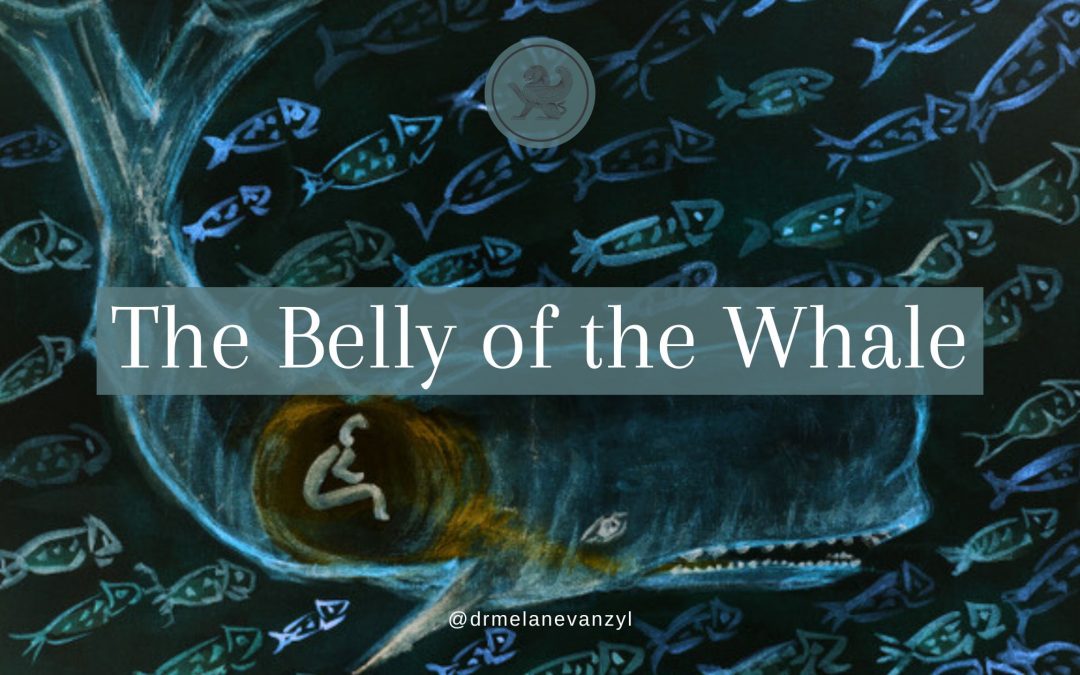In The Hero with thousand faces, Joseph Campbell’s famous book, the belly of the whale is the fifth stage which the hero has to survive on his (or her) quest.
Soon after the hero has departed on his quest, he falls into the belly of the whale. The hero accepted the call of adventure, received his supernatural aid, and survived crossing the first threshold. Now the hero is alone, in the dark, and probably depressed.
What does the belly of the whale symbolize?
The belly is like a womb, a cavity that symbolizes the feminine principle, albeit dark. On a quest through the psyche, every person arrives at this dark and lonely place. The hero is reborn after going inwards.
There are many stories and myths with this theme- the first one coming to my mind is Jonah and the big fish. Jonah was supposed to preach to the people of Nineveh, but he ran away in the opposite direction. He landed on a boat, and the others on the ship realized Jonah was the cause of the storm, so they threw him overboard. God sent the whale to save Jonah. He spent three days and nights in the belly of the whale before the whale spat him out on the beach. Of course, now Jonah went and completed his quest to preach to Nineveh.
Most of us do not consciously choose to go to the belly of the whale. After a disruption in ordinary life, one thing leads to another, and then we find ourselves alone in the dark. Some, sensing the danger, refuse to go inside. In the belly of the whale, there is nothing to do, no escape, and no help. This loneliness can lead to depression.
However, sitting with the Self long enough helps us to befriend it. Meditation can also give us this experience. Emerging out of the belly (or womb), we are different. The loneliness and darkness set the right conditions for incubation.
Do not be afraid to enter the belly of the whale. Those who do not enter will always think it is a dangerous and even evil place.
After meeting the psyche, we can make a fresh start, knowing a sanctuary is always available.
References:
1. The hero with a thousand faces, Joseph Campbell
2. The book of Jonah, The Bible

